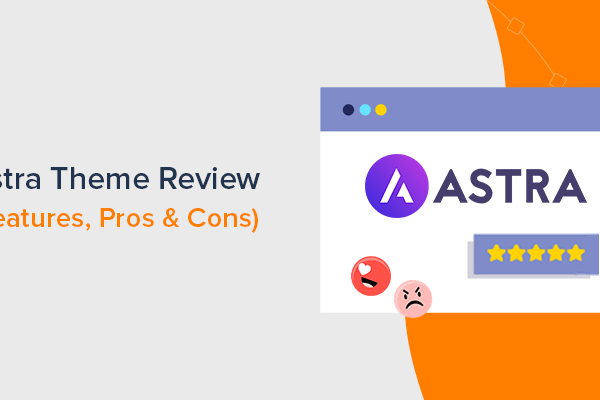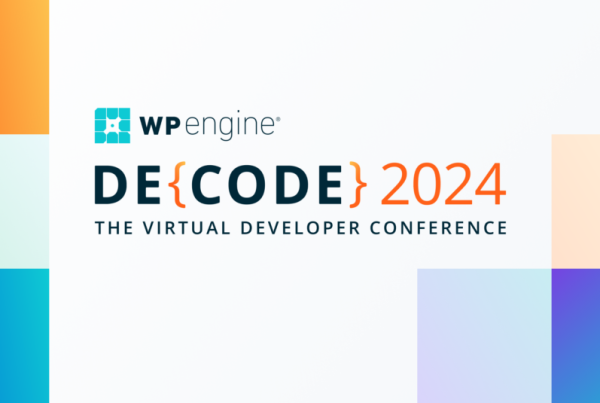DigitalOcean has transformed the way teams and individual developers host apps and other web dev projects. It’s a unique form of hosting that removes the need to manage your own development infrastructure through powerful and reliable cloud hosting. DigitalOcean has also made this unique form of hosting more affordable. Why would anyone need DigitalOcean alternatives then?
As with most technology-based systems, however, some users want an even lower price, increased storage, or unique features. That’s why we put together a list of the best DigitalOcean alternatives available today.
The most reliable alternatives offer a form of cloud hosting made specifically for developers. Some of them are less expensive, while others are merely “different” from the industry standard of DigitalOcean. Like the Googles and Microsofts of the world, finding different programs allows for a less cookie-cutter solution, and of course, it’s nice to see competition.

How a DigitalOcean alternative is different from regular web hosting
A Google search for “DigitalOcean alternatives” delivers an alarming list of non-equivalent hosting recommendations.
Misleading articles often suggest Bluehost, DreamHost, or similar shared hosting services as direct DigitalOcean alternatives.
Although some classic hosting companies offer cloud hosting, they’re typically not designed specifically for development. In addition, you run the risk of missing features offered by true cloud hosting services like DigitalOcean and its alternatives.
Here are the primary differences between cloud hosting and regular web hosting:
Cloud hosting
- You receive scalable virtual hosting.
- Your workload is balanced across a network of servers.
- You don’t rely on one server, making for a more secure, stable, and high-performance environment.
- You generally pay as you go, only for what’s used.
In conclusion, traditional web hosting works well for running a regular website. But for advanced app and systems development, cloud hosting is superior, like with DigitalOcean, or any of the DigitalOcean alternatives.
Best DigitalOcean alternatives on the market
Quite a few alternates exist, but we’re focusing on the ones that provide similar functionality to DigitalOcean, along with reasonable pricing and easy-to-use interfaces:
1. Vultr
Vultr makes for an excellent DigitalOcean alternative due to its ability to develop projects locally and deploy them on a global scale. The cloud hosting service boasts over 17 locations around the world, and the cloud computing starts at $2.50 per month.
Vultr sells products such as cloud computing, bare metal dedicated servers, and block storage for the ultimate SSD-backed storage solution. The company is known for its enterprise-class security and performance, and it provides a clean dashboard with responsive customer support.
Features that make this a top DigitalOcean alternative
- Top-notch global performance – From Chicago to Tokyo, it doesn’t matter where you’re developing your new app. The Vultr network allows for global deployment to scale up on a low-latency infrastructure.
- Multi-device – Use your tablet, desktop, or smartphone to access the servers and adjust the server type.
- Security and privacy – The Vultr network offers segmentation in multiple networks, all of which are private.
- A dashboard built for team management – Use the modern dashboard with single sign-on functionality to manage your API access, handle team tasks, and check on server health.
- Support for major operating systems – Utilize Windows, Ubuntu, CoreOS, and more. You can upload your own ISO for an unlimited number of operating system combinations.
- Strong addons – Choose from addons like firewalls, DDoS protecting, backups, and more.
- State-of-the-art equipment – Vultr uses Intel cores and solid-state drives for the best performance.
Pricing
Vultr sells the following products/services:
- Cloud computing
- Dedicated servers
- Object storage
- Block storage
- A dedicated cloud
- Load balancers
Each product has its own pricing shown that you can explore on the Vultr website.
The cloud computing pricing is flexible based on SSD and RAM usage, but here are some examples:
- Starting at $2.50 per month for 10 GB SSD and 512 MB RAM.
- $20 per month for 80 GB SSD and 4GB RAM. This includes two CPUs and 3 TB of bandwidth.
- Up to $640 per month for 1600 GB SSD, 96 GB RAM, 24 CPU, and 15 TB bandwidth.
2. Kamatera
Kamatera provides cloud servers, private networks, and other products that make it a viable DigitalOcean alternative. The selling point from Kamatera is that the cloud servers are not only flexible and high-performance, but they’re cost-effective and great for any complex cloud infrastructure.
The customer support is provided through a 24/7 telephone system. You can also contact the company through email or check out the many knowledge base articles to figure out problems yourself.
Features that make this a top DigitalOcean alternative
- Rapid configuration – Getting on a cloud server from Kamatera happens in only a few minutes. The company helps with migrations and provides consulting and instructional training.
- Backups and monitoring – They keep your infrastructure secure and available as a reboot if anything goes wrong.
- A handy dashboard – This area is helpful for assigning roles, adding servers, and giving yourself root access for ongoing management.
- Managed cloud services – You can work with Kamatera to develop tailor-made solutions for your organization. This cuts out the server management on your end and minimizes your work when it comes to things like web servers, operating systems, and load balancers.
- Disaster recovery – From cyber attacks to equipment problems, Kamatera has a system for storing your data and recovering it if disaster strikes. A few elements included with this program involve database saving, data replication, and one-click restoration.
- Cloud block storage – Utilize a scalable storage option that goes hand-in-hand with your cloud hosting.
- Load balancer – All work gets distributed amongst a network of servers to ensure the best performance, even during peak times.
Pricing
Like many cloud hosting solutions, Kamatera pricing is based on how much RAM, SSD storage, and CPUs are used.
We recommend going to the Build Your Own Server page to get an idea for how much it’ll cost your company to go with Kamatera as a DigitalOcean alternative.
Here are examples of pricing based on common setups:
- $4 per month for 1 CPU, 1024 MB RAM, and 20 GB SSD.
- $45 per month for 2 CPUs, 4096 MB RAM, and 350 GB SSD.
- $214 per month for 6 CPUs, 32,768 MB RAM, and 1000 GB SSD.
- $1,534 per month for 72 CPUs, 131,072 MB RAM, and 4000 GB SSD.
Flexibility is paramount with Kamatera pricing. The examples above cover a wide range of options. There’s a price point and feature offering for all needs.
Kamatera has additional upsells like an extended daily backup, operating system add-ons, included internet traffic, and its fully managed cloud hosting service.
3. Google Cloud
Google is in the cloud hosting game as well, giving developers access to its world-class infrastructure. There are also many managed hosting providers that utilize Google Cloud and repackage or resell it to thousands of other customers.
As you might imagine, Google Cloud offers a high-performance package and support for large migrations and heavy workloads. It protects your data with anti-malware, multi-layered security, and constant threat detection.
Features that make this a top DigitalOcean alternative
- A large network – Google Cloud servers are located in over 200 countries.
- A modern infrastructure – Critical workloads are supported through Google Cloud, allowing for enterprise-grade projects.
- Full access and simple controls – Moderate and manage your cloud servers from any device, and check actionable insights and predictive analytics at any time.
- Iron-clad security – Google Cloud offers security systems for stopping online threats and detecting them the moment they happen.
- Improved storage – Place high-resolution, large files on the Google Cloud platform to support whatever media you have.
- A hybrid infrastructure – Google has options for you to choose from, such as a hybrid network, an on-premise server, or a multi-cloud network.
Pricing
Google is definitely a contender for the lowest pricing among DigitalOcean alternatives, but it’s difficult to say because of its sporadic discounts and complicated price listings.
Having said that, you sign up for a free trial, a pay-as-you-go system, and the option to cancel your contract without any fees.
What’s strange is that the Google Cloud prices listed on the website are wildly confusing – contrary to how Google usually operates with pricing.
We recommend looking at this pricing list. Here are a few example prices based on usage:
- $16 per month for 3.75 GB RAM. Storage and bandwidth is calculated separately at $.02 per GB per month for storage and $.12 per GB per month for bandwidth.
- A total of around $62 per month for 15 GB of RAM and 4 CPUs.
- $124 per month for 8 CPUs and 30 GB of RAM.
The good news is that many of the cloud services are free through Google Cloud. In addition, you can keep scaling up to the point where the pricing gets to thousands of dollars per month. Google Cloud pricing is flexible, even if the costs aren’t portrayed clearly on the website.
4. Amazon Web Services
Amazon Web Services, or AWS, has gained popularity as a way to use the already secure and efficient Amazon server farms. A wide array of products are offered, all of which have different names.
For instance, the cloud hosting product is called Amazon EC2, while the cloud storage is named S3 (Amazon Simple Storage Service).
Features that make this a top DigitalOcean alternative
- True virtual computing – All computing is done via a digital interface for launching instances and loading applications from any device.
- Compute performance optimization – Amazon EC2 is flexible in terms of optimization and performance, allowing you to choose your own computation capacity or let Amazon decide and adjust for you.
- Software access – Amazon provides free, or discounted, access to several commercial software options such as Drupal and SAP.
- Multiple supported operating systems – Choose from Linux, Windows, CentOS, and Debian.
- An enhanced networking formula – Amazon utilizes a networking process that boosts your performance but lowers the amount of CPU usage.
- Computing clusters – Your workloads are spread over a large network of servers to prevent security issues and improve performance.
- Automatic scaling – Demand spikes are automatically accounted for when using Amazon EC2. You don’t have to worry about calling Amazon to get more resources. It’s done for you.
Pricing
Amazon EC2 is sold as five models: on-demand, savings plans, reserved instances, spot instances, and dedicated hosts.
Feel free to explore all pricing. As a DigitalOcean alternative, the on-demand pricing makes the most sense for comparison.
Here’s the pricing scale, with Linux examples listed below:
- $0.0255 per hour for one CPUs, 2 GB memory, and EBS-only storage.
- $0.192 per hour for 4 CPUs, 16 GB memory, and EBS-only storage.
- $0.412 per Hour for 8 CPUs, 32 GB memory, and 1 x 300 NVMe SSD.
5. Linode
Linode presents a developer cloud without the complications we find from other competitors on the market. It runs solely on Linux machines with products and services for cloud networking, server management, and storage.
Features that make this a top DigitalOcean alternative
- A sleek cloud manager – The Linode dashboard is accessible on all devices, and it provides a modern approach to permission settings and server management.
- A strong content delivery network – All content is sent from server to server by utilizing Linode data centers around the world.
- App integrations – Combine your workflow with popular apps and programs like WordPress and GitLab.
- High-end storage – Choose from block and object storage, with the bonus of constant backups.
- Improved networking – The Linode network is powered with the help of node balancers and a DNS manager.
- User-friendliness – Linode is truly one of the easiest cloud hosts to use, with full API access, one-click apps, and quick user management.
- Multiple cloud services – Choose between managed, self-managed, and professional services.
Pricing
Along with one of the simplest cloud hosting dashboards, Linode pricing is far easier to understand than the other alternatives on this list.
Find the pricing here, and see examples below:
- $5 per month for 1 CPU, 25 GB SSD, and 1 TB for transfer.
- $40 per month for 4 CPUs, 160 GB SSD, and 5 TB for transfer.
- $480 per month for 20 CPUs, 1920 GB SSD, and 20 TB for transfer.
You can also choose from high memory, block storage, node balancer, GPU, and dedicated CPU plans.
Choosing the right DigitalOcean alternative for your business
The features listed above are great for comparing the cloud hosting options. However, we suggest going to each website to compare pricing, as you may find diminishing returns depending on your needs.
If you have any questions about finding your ideal DigitalOcean alternatives, share in the comments!
…
Don’t forget to join our crash course on speeding up your WordPress site. With some simple fixes, you can reduce your loading time by even 50-80%:
Or start the conversation in our Facebook group for WordPress professionals. Find answers, share tips, and get help from other WordPress experts. Join now (it’s free)!


















